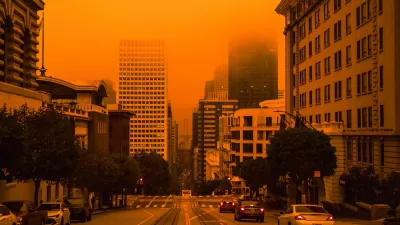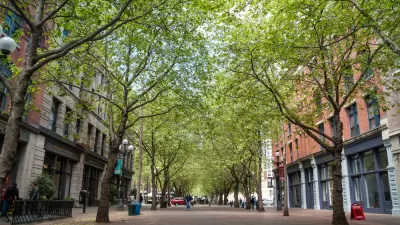Despite the seemingly positive news outlined in a new report detailing the role global warming periods play in increasing biodiversity, today's extremely-rapid warming trajectory may cancel out any hope of that.
A study published this week in the Proceedings of the National Academy of Sciences details the historically positive role that periods of warming have had in increasing global biodiversity. "[Researchers] found that biodiversity increases over periods of warming in the earth's climate with many new species emerging," reports The Guardian's Flora Malien, "although these are simultaneously accompanied by extinctions of existing species."
Scientists, though, warn us not to get our hopes up about the outcome of our current warming trend. "I'm afraid it's not good news in terms of what we might experience from global warming in the next few decades," says study director Dr Peter Mayhew at York University. "Because obviously extinction can happen rapidly, but speciation [the generation of new species] can't happen rapidly. So unfortunately we're quite likely, simply because of the rate of climate change today, to see extinctions occurring. And we're unlikely to see the benefits that might go along with that, which is the generation of new species."
FULL STORY: Why biodiversity increase from global warming is not good news

Alabama: Trump Terminates Settlements for Black Communities Harmed By Raw Sewage
Trump deemed the landmark civil rights agreement “illegal DEI and environmental justice policy.”

Planetizen Federal Action Tracker
A weekly monitor of how Trump’s orders and actions are impacting planners and planning in America.

The 120 Year Old Tiny Home Villages That Sheltered San Francisco’s Earthquake Refugees
More than a century ago, San Francisco mobilized to house thousands of residents displaced by the 1906 earthquake. Could their strategy offer a model for the present?

In Both Crashes and Crime, Public Transportation is Far Safer than Driving
Contrary to popular assumptions, public transportation has far lower crash and crime rates than automobile travel. For safer communities, improve and encourage transit travel.

Report: Zoning Reforms Should Complement Nashville’s Ambitious Transit Plan
Without reform, restrictive zoning codes will limit the impact of the city’s planned transit expansion and could exclude some of the residents who depend on transit the most.

Judge Orders Release of Frozen IRA, IIJA Funding
The decision is a victory for environmental groups who charged that freezing funds for critical infrastructure and disaster response programs caused “real and irreparable harm” to communities.
Urban Design for Planners 1: Software Tools
This six-course series explores essential urban design concepts using open source software and equips planners with the tools they need to participate fully in the urban design process.
Planning for Universal Design
Learn the tools for implementing Universal Design in planning regulations.
Clanton & Associates, Inc.
Jessamine County Fiscal Court
Institute for Housing and Urban Development Studies (IHS)
City of Grandview
Harvard GSD Executive Education
Toledo-Lucas County Plan Commissions
Salt Lake City
NYU Wagner Graduate School of Public Service





























